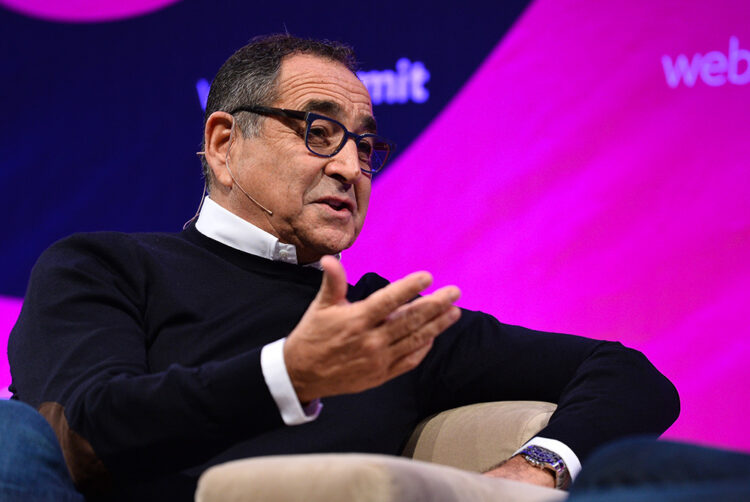100% Media 0% Nonsense
Whatever happened between Michael Kassan and UTA, the great dealmaker’s acrimonious exit marks the end of an era for the industry’s so-called power brokers, writes the editor-in-chief.
In the future, when we look back on how the internet changed media and advertising, there is one loud, obnoxious element that we will be pleased to see the back of.
The power broker.
The larger-than-life, ultra-connected, looming loudmouth who is great at making deals and even better at making sure everyone knows it was they who did it. The man (it’s always a man) who is inducted into preposterous “hall of fame” lists, in which the very people who need it least are adorned with gold stars.
So whether Michael Kassan’s acrimonious exit from United Talent Agency (UTA) is his fault or not is, ultimately, unimportant.
The Michael Kassans of the world are no longer relevant.
Paying a credulity premium
Kassan is 73 years old and sold MediaLink to UTA in 2021.
Most people who reach 70 are pretty set in their ways. I find it hard to believe that, even if its allegations are true, UTA should have found Kassan’s behaviour surprising.
The company last week accused Kassan in court filings of “wasting millions of UTA’s dollars on his lavish personal lifestyle”.
The word “wasting” is interesting because it’s a subjective term — one person’s waste is another’s treasure, as the cliché goes. It implies that it’s not the spending of millions of dollars that is the issue, it’s that the money was apparently not spent very well.
And that, in essence, is why Kassan is an endangered species. It’s clear in black and white if you go back and look at the press release when UTA announced the MediaLink acquisition three years ago: “Kassan and his 150+ member team have built one of the advisory world’s most enviable networks of C-suite relationships across entertainment, technology, brands, marketing and finance.”
An “enviable network” that features “C-suite relationships”. In other words, UTA was buying Kassan.
What kind of organisation spends $125m to buy a company based largely on one man’s personal brand without knowing as much as possible about the man involved?
Remember that MediaLink’s previous owner, Cannes Lions parent Ascential, had acquired the company for $200m despite MediaLink having revenue of less than $60m. This is not a company with proprietary tech and yet it achieved a sizeable multiple.
Value lies elsewhere
Is it possible that Kassan and his alleged $950,000 expense account had become just too expensive for what really matters in media and advertising nowadays?
We see this time and again when we listen to what media buyers and sellers on the ground are actually saying about this industry. This is a sector in which anyone can be a content creator and advertisers demand actual evidence to justify their spending decisions.
So the need to make talent-based “deals” between media owners and advertisers’ agencies is diminishing with importance with each passing year.
This was made painfully clear during last year’s writers’ strike in the US — the second-longest strike in the history of the Writers Guild of America. This once-powerful union simply has less bargaining power because the supply-and-demand curves of media have been shifted by technological change.
If you attended our two-day Connected TV World Summit in London last week, you would know what occupies industry minds most these days is far tougher than any one person’s ability to do “deals”. The supply chain has become too fragmented and so dependent on technology that so-called dealmakers form a relatively smaller and less influential part of the media system.
Media owners (streaming and legacy TV) all recognise the need to collaborate, whether it’s by setting quality media measurement standards for the digital age, improving subscription bundle deals or making the content discovery experience better in platforms that have become awash with content.
None of that requires a bulging contacts book. It requires an ability to match the right tech solution with the right project, of which there are many in this increasingly complex industry.
The Ryan Reynolds-ification of talent
All of this means the likes of UTA, as well as the likes of Kassan, face an uncertain future too.
In a world where media consumers are increasingly just as happy to watch a YouTuber or TikToker create content as they are watching reruns on Netflix or live-streamed esports on Twitch, the media titans of the 20th century don’t exist any more.
This has put overwhelming pressure on Los Angeles as the entertainment capital of the world, as linear TV revenues have sharply declined, box office successes are less frequent and the streaming subscription bubble has burst.
Of course talent is still important but, like everyone else in the media supply chain, they’re having to work harder.
And they are working harder. When you have A-listers like Ryan Reynolds setting up their own production companies and wooing people at Cannes Lions, suddenly the relative celebrity of our industry “power brokers” seem even more antiquated. When legacy broadcasters spend more time talking about tools than talent at their upfronts, you know something has changed in media.
 Omar Oakes is editor-in-chief of The Media Leader
Omar Oakes is editor-in-chief of The Media Leader
100% Media 0% Nonsense is a weekly column about the state of media and advertising. Make sure you sign up to our daily newsletter to get this column first in your inbox every Monday, as well as key updates with what’s happening at The Media Leader and our upcoming events.
Media can lead us out of our anti-family society
Why Mediapalooza won’t happen this year
Squeamish about advertising? Get over it






 Omar Oakes is editor-in-chief of The Media Leader
Omar Oakes is editor-in-chief of The Media Leader